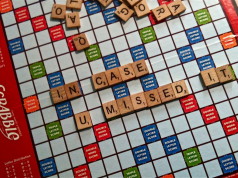
Inside baseball, revisited
We took great interest in the fact that Boulder City Council member KC Becker was chosen to succeed Claire Levy as state representative to House District 13.
After all, we broke the story about how one of the candidates to replace Levy, her former aide and campaign manager Tad Kline, served on the very vacancy committee charged with choosing her replacement — and had no plans to recuse himself from voting on his own appointment.
It seemed to be a glimpse into the inside baseball that sometimes occurs within political parties when only a handful of people — in this case, a 35-member committee of Democratic insiders — are charged with selecting the person who may well represent our district for the next nine years, given the advantage that Democratic incumbents have in HD 13. After all, Levy had served since 2006 and was only stepping down 14 months before her final term ended because she got a job as executive director of the Colorado Center on Law and Policy.
In the end, it turns out, Kline did the right thing and abstained from voting on the matter at the Oct. 19 meeting. Despite gaining the endorsement of Levy, he only garnered 12 votes to Becker’s 17. (Candidate George Clark of Evergreen was eliminated in an early voting round, and Gilpin County Coroner Zane Laubhan dropped out of the race.)
We’re not sure whether the ethical questions played a role in this at all, but we take very seriously our responsibility to shine light on possible conflicts of interest, whether it’s Democrats or Republicans. It’s not that we were favoring Becker; we’ve raised questions about her own possible conflicts of interest during her service on city council.
It’s pretty simple, folks. If you think it might look even slightly questionable if you were to read about it in the newspaper, go ahead and disclose it. If you have a problem doing that, maybe you shouldn’t run for public office.
Council goes to pot
We are not shy about criticizing the bone-headed moves that Boulder City Council makes periodically, but this time it seems to have gotten one right.
The council voted Oct. 22 to allow existing medical marijuana dispensaries to convert to a mixed-use model, combining retail with medical marijuana, in their current locations, instead of forcing them to choose one or the other and relocate if they opt for retail.
The reason why this is important is that no one knows how the new retail marijuana shops will affect the existing medical marijuana market. Much depends on whether voters approve the hefty retail marijuana taxes on the ballot in November at the state and municipal levels, Proposition AA and City of Boulder Issue 2A. For instance, if both taxes pass, marijuana users may decide retail is simply too pricey and stick to their existing sources, whether it’s a dispensary or the black market. Alternatively, if the tax measures are defeated, perhaps retail marijuana will prove to be a thriving market, even taking business away from medical marijuana outlets.
Allowing existing dispensaries to run retail under their roof in a joint operation, pun intended, gives them the flexibility to adjust their business model as needed and respond to market forces in a future that is still very smoky, er, cloudy.
Respond: [email protected]












